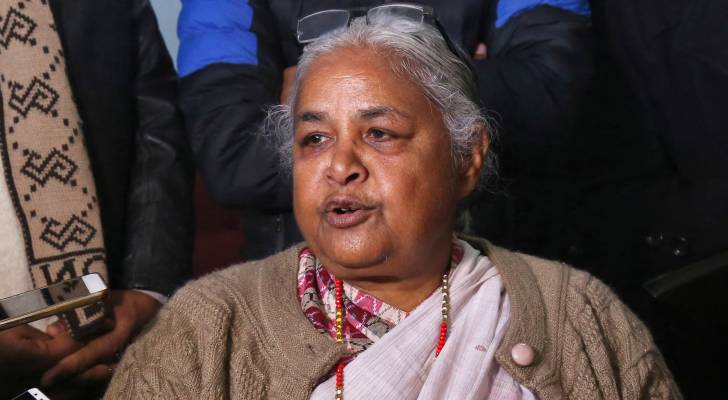Nepal's interim Prime Minister Sushila Karki (Credit: Reuters)
Nepal’s Gen-Z endorses interim Prime Minister through Discord vote
Nepal entered uncharted political territory on Friday as Sushila Karki, the country’s first female chief justice, was sworn in as interim Prime Minister.
Her appointment follows a week of violent upheaval that toppled the sitting government and left dozens dead in what observers are calling the most significant social unrest in years.
Karki, 73, emerged as the unlikely choice of the country’s youth, who spearheaded protests against entrenched corruption and nepotism. What began online as a campaign mocking the extravagant lifestyles of politicians’ children, dubbed “Nepo Kids”, quickly spilled into the streets, culminating in the torching of parliament and the Supreme Court.
Protesters rallied behind Karki through an informal vote on the messaging platform Discord, choosing her as a figure of integrity untainted by political opportunism.
“We want someone who has integrity and is not a political opportunist. She fits that category for us,” said 28-year-old aspiring chartered accountant Biraj Aryal, calling her “the only figure that the entire country can rely upon.”
Anjali Sah, a 24-year-old law student, echoed the sentiment, “She has shown she has a spine. She is also the first female justice of Nepal and we are hoping that a woman leading this country will help set things in order and reduce corruption.”
Karki’s record on the bench has long distinguished her from the political elite. As chief justice in 2016, she won a reputation for zero tolerance toward corruption. A year later, she faced impeachment after her court overturned the government’s handpicked choice for police chief, a move hailed as a stand against political cronyism. Public outcry forced lawmakers to withdraw the motion, bolstering her image as a defender of institutional integrity.
Born in eastern Nepal’s Morang district, Karki rose through the legal ranks before shattering glass ceilings in the judiciary. More recently, she has become an outspoken critic of the politicization of judicial appointments, a stance that has raised her profile among reform-minded citizens.
The interim leader inherits a country shaken by violence. Nepal Police spokesperson Binod Ghimire confirmed that 51 people have been killed since the unrest began, including 21 protesters, three police officers, and 27 others. More than 1,700 have been wounded, according to the Ministry of Health and Population.
President Ram Chandra Paudel announced that parliament has been dissolved at Karki’s recommendation, with fresh elections scheduled for March 5, 2026.
India, Nepal’s largest neighbor and strategic partner, welcomed her appointment. “As a close neighbour, a fellow democracy and a long term development partner, India will continue to work closely with Nepal for the well-being and prosperity of our two peoples and countries,” its Ministry of External Affairs said in a statement.
For many young Nepalis, the protests reflected simmering frustration over rising youth unemployment, lack of opportunity, and widening inequality between the ruling elite and ordinary citizens. A government decision last week to block more than two dozen social media platforms, including Instagram, Facebook, and WhatsApp, only inflamed the movement.
Binay Mishra, a Kathmandu-based policy analyst, said Karki’s rise has been accelerated by her “very vocal” criticism of political interference in the judiciary. “She has grown in stature over the past few months,” he said.
For now, Karki stands as both a symbol of generational defiance and a test of whether one of Nepal’s most trusted legal minds can steer the country out of crisis.




